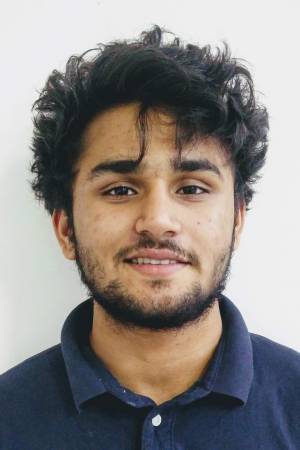PhD Speaking Qualifier
Joint 2D and 3D Semi-Supervised Object Detection
Abstract: While numerous 3D detection works leverage the complementary relationship between RGB images and point clouds, developments in the broader framework of semi-supervised object recognition remain uninfluenced by multi-modal fusion. Current methods develop independent pipelines for 2D and 3D semi-supervised learning despite the availability of paired image and point cloud frames. Observing that the distinct [...]
Towards Agile Robotics: Creating Push-Off Skills for Dynamic Interactions
Abstract: Dynamic interactions play a fundamental role in human capabilities, enabling us to achieve a wide range of tasks such as moving heavy objects, manipulating our surroundings, and changing directions rapidly and safely. In contrast, most conventional robotic systems lack this level of agility and cannot perform dynamic interactions, limiting their potential in practical applications. [...]
Generative Evolutionary Search with Diffusion Models for Trajectory Optimization
Abstract: Diffusion models excel at modeling complex and multimodal trajectory distributions for decision-making and control. Reward-gradient guided denoising has been recently proposed to generate trajectories that maximize both a differentiable reward function and the likelihood under the data distribution captured by a diffusion model. Reward-gradient guided denoising requires a differentiable reward function fitted to both [...]
Tartancalib: Iterative Wide-Angle Lens Calibration
Abstract: Mobile vision systems greatly benefit from the large field-of-view enabled by wide-angle lenses. Accurate and robust intrinsic calibration is a critical prerequisite for leveraging this property. Calibrating wide-angle lenses with current state-of-the-art techniques yields poor results due to extreme distortion at the edge. In this work, we present TartanCalib, an accurate and robust method [...]
Zero-Shot Video Question Answering with Procedural Programs
Abstract: We propose to answer zero-shot questions about videos by generating short procedural programs that derive a final answer from solving a sequence of visual subtasks. We present Procedural Video Querying (ProViQ), which uses a large language model to generate such programs from an input question and an API of visual modules in the prompt, [...]
Robust Body Exposure (RoBE): A Graph-based Dynamics Modeling Approach to Manipulating Blankets over People
Abstract: Robotic caregivers could potentially improve the quality of life of many who require physical assistance. However, in order to assist individuals who are lying in bed, robots must be capable of dealing with a significant obstacle: the blanket or sheet that will almost always cover the person's body. We propose a method for targeted [...]
Probabilistic 3D Multi-Object Cooperative Tracking for Autonomous Driving via Differentiable Multi-Sensor Kalman Filter
This talk has been postponed […]
Learning to Manipulate beyond Imitation
Abstract: Imitation learning has been a prevalent approach for teaching robots manipulation skills but still suffers from scalability and generalizability. In this talk, I'll argue for going beyond elementary behavioral imitation from human demonstrations. Instead, I'll present two key directions: 1) Creating Manipulation Controllers from Pre-Trained Representations, and 2) Representing Video Demonstrations with Parameterized Symbolic [...]
Leveraging Parallelism to Accelerate Quadratic Program Solvers for MPC
Abstract: Many problems in robotics can be formulated as quadratic programs (QPs). In particular, model-predictive control problems often involve repeatedly solving QPs at very high rates (up to kilohertz). However, while other areas of robotics like machine learning have achieved high performance by taking advantage of parallelism on modern computing hardware, state-of-the-art algorithms for solving [...]
Composing Generative and Discriminative Models for Better Generalization
Abstract: Computer Vision is Correspondence, correspondence, correspondence! Inspite of the singular definition of computer vision, we still have two broad categories of approaches in the literature. Generative Models, like Stable Diffusion, learn a correspondence between image and text modality, while learning a mapping from text to image. Discriminative Models, like CLIP, on the other hand [...]
Lower Bounds for Moving Target Traveling Salesman Motion Planning with Obstacles
Abstract: We study the problem of finding a trajectory for an agent to intercept a number of moving targets while avoiding obstacles. Applications include resupplying naval ships at sea and recharging aerial vehicles with a ground vehicle. We model the problem as an extension of the traveling salesman problem, which we refer to as the [...]







